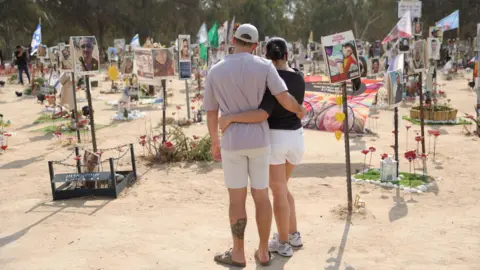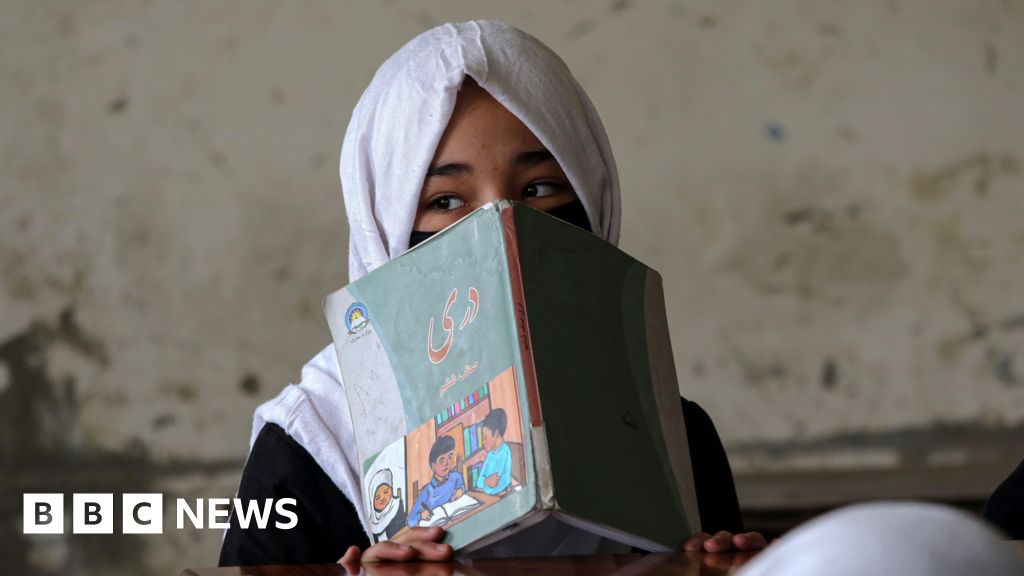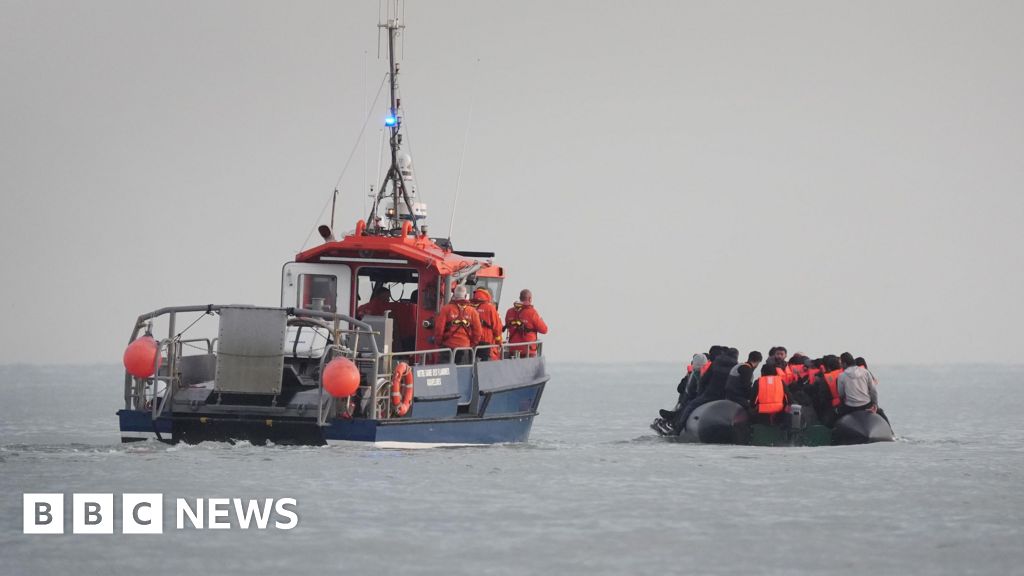 EPA
EPAHamas used sexual violence as “part of a deliberate genocidal strategy” during the 7 October 2023 attack on Israel, an all-women group of Israeli legal and gender experts allege in a new report calling for justice.
The Dinah Project says the report is based on a review of evidence including first-hand testimony from a survivor of an attempted rape and 15 former hostages held in Gaza, as well as accounts from witnesses to sexual assaults.
It lays out what the group describes as “a legal blueprint for prosecuting these crimes, even when direct attribution to individual perpetrators is impossible”.
Hamas has denied its forces committed sexual violence against women or mistreated female hostages.
However, a UN mission concluded in March 2024 that there were “reasonable grounds” to believe that conflict-related sexual violence occurred during the 7 October attack in multiple locations, including rape and gang rape, and that there was “convincing information” that hostages had been subjected to sexual violence, including rape and sexualised torture.
And before they were assassinated by Israel, three top Hamas leaders were also accused by the International Criminal Court’s prosecutor of the crimes against humanity of rape and other forms of sexual violence, in addition to murder, extermination and torture.
On 7 October, hundreds of members of Hamas and allied Palestinian armed groups attacked southern Israel, where they killed about 1,200 people and took 251 others hostage.
Israel responded by launching a military campaign in Gaza, during which more than 57,500 people have been killed, according to the territory’s Hamas-run health ministry.
Warning: Contains graphic descriptions of rape and sexual violence
The Dinah Project was launched after 7 October to pursue justice for victims of sexual violence. It was founded by legal scholar Ruth Halperin-Kaddar, lawyer and former chief military prosecutor Sharon Zagagi-Pinhas, and former judge and deputy attorney general Nava Ben-Or.
It says that the report, which was published on Tuesday, “establishes that Hamas used sexual violence as a tactical weapon, as part of a genocidal scheme and with the goal of terrorizing and dehumanizing Israeli society”.
It also “creates a pathway to justice for victims of the 7 October attack and potentially for victims in other conflict zones”, according to the group.
The authors say they reviewed a large volume of sources, ranging from social media posts to recorded testimony, as well as forensic evidence and visual and audio evidence.
The report – which does not identify the victims but cites reports that do name some of them – says a female survivor of the attack on the Nova music festival on 7 October told members of the Dinah Project that she was subjected to an attempted rape and sexual assault.
According to the report, one of the 15 former hostages said she was forced to perform a sexual act, which was preceded by sexual abuse and verbal and physical sexual harassment. She also said she endured forced nudity – an experience which was reported by six other hostages as well.
Almost all of the hostages reported verbal and some physical harassment, including “unwanted physical contact in private parts”, the report says, while six said they also faced threats of forced marriage.
Two men among the hostages said they were subjected to forced nudity and physical abuse when naked, with one also recounting the shaving of all his body hair, according to the report.
The Dinah Project says the accounts from people who saw or heard incidents of sexual violence showed that such crimes were “widespread and systematic” on 7 October.
According to the report, five witnesses reported at least four separate cases of gang rape; seven reported at least eight other separate cases of rape or severe sexual assaults, some of them in captivity; five reported at least three separate cases of sexual assaults, some in captivity; and three reported three separate cases of mutilation.
Nine of those cases related to the Nova music festival, two to the Nahal Oz military base, one to the Route 232 road, and four to incidents occurring in captivity in Gaza, the report says.
Twenty-seven first responders meanwhile described dozens of cases which showed “clear signs of sexual violence across six locations”, the report says – the Nova festival, Route 232, and the kibbutzim of Be’eri, Alumim, Nahal Oz and Re’im.
The report also says that “most victims were permanently silenced”, because they were either killed on 7 October or left too traumatised to talk.
In response, the authors provide what they describe as the “first global legal blueprint explaining how to prosecute sexual violence as a weapon of war – even when evidence is messy, survivors are gone, and individual perpetrators can’t be tied to individual acts”.
That includes an evidentiary framework to categorise information based on its proximity to incidents and its evidentiary value, and a legal framework for establishing criminal responsibility for atrocities committed during mass attacks, even when an individual did not personally commit each specific act or were not aware of its commission by someone else.
The report concludes by saying that justice is “essential not only for individual victims but for affirming broader principles: that sexual violence in conflict is a serious violation of international law, that perpetrators will be held accountable, and that the international community will not allow such crimes to be committed with impunity”.
Source link













